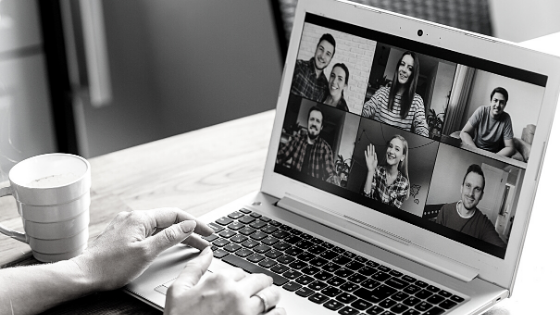The mental and emotional health of employees has drawn great attention in recent times. The global pandemic and its tremendous repercussions on the way we work and do business emphasises the mental wellbeing of our people. Many businesses, especially small and medium-sized companies, are coming to terms with this phenomenon and are looking at ways to improve the morale and productivity of their virtual teams in the new world order.

The following tried and tested initiatives are a good starting point for businesses exploring this concept for the first time. Most of these practices have been successfully deployed for many years at various Fortune 1000 companies and hence those experiences can be invaluable for the smaller companies.
1. Weekly fun hour:
This is a simple practice to set aside an hour each week where all the team members get a chance to know each other and what’s happening in their lives. Some of the more common activities to do during this hour are:
a. Birthday / Wedding anniversary / Company anniversary celebrations
b. Sharing pics of their family, past travel, unique experiences, etc
c. Virtual team games/board games
d. Sharing favourite stories/quotes/personalities
e. Book reading / personal development time
f. Best practices from a different industry
2. Coffee connects and virtual coffee connects:
This practice is most effective when done between random people who don’t generally work in the same team. This experience should be similar to the water cooler conversation in the office when you bump into a random conversation with someone you don’t work closely with. Virtual connect is especially beneficial when working remotely. Working from home with no physical interaction with colleagues can be a draining experience on your staff’s mental and emotional morale. Encourage your employees to set up at least one virtual coffee connect during the week in pairs or amongst a max group of 3 people. It a great way to get to know that other person and to keep that human connection going.
3. Employee counselling and coaching sessions:
Executive coaching only for your CXO team is such an outdated concept. Providing access to counselling and life coaching for your staff is a great way to create a healthy workplace. Skilled counsellors or coaches, who provide co-workers with a safe and non-judgemental space to share; who ask powerful questions to challenge their beliefs; who help set goals and inspire them to succeed, could be the most valued gifts you can reward your staff with. As per a research conducted by Manchester Consulting Group in 2001, the ROI (return on investment) from business coaching could be a whopping 790%, in addition to the numerous soft benefits such as greater job satisfaction and better working relationships.
4. Wellness programmes and workshops:
Apart from the 1 on 1 session above, staff can also greatly benefit from regular group wellness programmes such as stress management, mindfulness, Yoga, positive psychology. art therapy, etc.. Such programmes can empower the staff with essential techniques that they can employ to manage their mental and emotional health.
5. Greater flexibility on work hours or deliverables:
Working from home creates stress of its own among employees who have to balance their work commitments within the home environment along with their duties to their family. Developing empathy with co-workers and to give them greater flexibility on their work hours and their job design, while still maintaining overall business objectives will go a long way in gaining loyalty and productivity from the staff.
The success of the above programmes will be determined by active participation from the leadership to set an example for others. Sir Richard Branson once quoted ”Take care of your employees and they take care of your business”. No doubt, mentally healthy teams are more productive and hence businesses that take care of their employees are more likely to flourish, especially during difficult times like these.






















